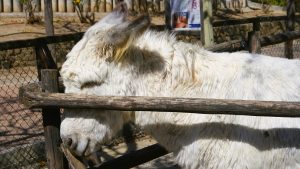Raygun musical cancelled after viral Olympian’s legal threat
4 min readA musical parody inspired by Australian Olympian Rachael Gunn’s journey to the Paris Olympics has been canceled following a legal threat from her team. The show, titled Raygun: The Musical, was set to debut on Saturday at Kinselas in Darlinghurst, Sydney. Created by Australian comedian Steph Broadbridge, who was also part of the cast, the musical was aimed at humorously reflecting Gunn’s Olympic experience. However, Gunn’s legal team intervened, sending a cease-and-desist letter claiming that the Olympian owned her dance moves, effectively halting the production.
The musical was centered around Gunn’s journey to the Paris Olympics and her viral performance, which included unconventional dance moves such as the “sprinkler” and “kangaroo-hop.” These moves gained significant attention after her appearance in the breaking (breakdancing) competition at the Summer Olympics, where she failed to score any points and was eliminated early. Despite the negative reception to her performance, some of her dance moves became viral, contributing to her growing public persona.
Gunn’s legal team defended their actions, stating their commitment to protecting her intellectual property and ensuring her brand remained respected and strong. They made it clear that the dances, including the kangaroo-hop, were part of Gunn’s unique brand and intellectual property. According to Gunn’s management, the dance moves were not only creative but integral to the Olympian’s identity. The legal action also included a trademark for the Raygun: The Musical poster, asserting that Gunn had exclusive ownership over the image and associated material.
In an Instagram video, Broadbridge responded to the legal threat, expressing confusion over the claims that Gunn “owned” the kangaroo-hop. Broadbridge humorously remarked, “That one did puzzle me – I mean, that’s an Olympic-level dance. How would I possibly be able to do that without any formal breakdancing training?” Despite the setback, Broadbridge reassured her followers that she was determined to rework the show, promising a new story arc and saying the show would return in the future. She also ensured that all ticket holders for the trial show would be refunded their A$10 tickets.
Broadbridge further addressed the situation, stating that Gunn’s legal team had expressed concerns that the musical could potentially harm Gunn’s brand, though she emphasized that this was never her intention. She expressed her admiration for Gunn’s achievements and stated that she never intended to damage the Olympian’s reputation.
Gunn’s Olympic journey was controversial. While she attracted online ridicule for her performance, some commentators argued that her appearance at the Olympics was a “mockery” of the sport. Gunn had received significant online abuse after failing to earn any points from the judges in the Olympic competition. The performance divided opinion within the breaking community, with some praising her for making the sport more accessible to the public, while others criticized her for not meeting the expected level of skill.
Originally, Gunn had expressed her intention to continue competing after the Olympics. However, in November, she announced that the negative attention she received had been so “upsetting” that she decided to retire from competitive breaking. Gunn said that the experience had caused her considerable distress and that she had rethought her future in the sport.
In light of the controversy surrounding the musical, Gunn’s legal team issued a statement reiterating their decision to protect her brand and creative rights. The statement emphasized that their actions were not intended to undermine Broadbridge’s efforts but rather to ensure that Gunn’s intellectual property and image were appropriately safeguarded. Gunn’s team expressed their respect for the work that went into creating the musical, but insisted that it was necessary to take steps to maintain the integrity of Gunn’s brand.
In response to the backlash, Gunn hinted at changing the name of her character in the musical, suggesting she might rebrand the character as “Raygun with an I” to address concerns from her legal team. This move was seen as an attempt to resolve the issue and satisfy those who believed her image was being misrepresented.
The cancellation of Raygun: The Musical marks an unusual clash between an artist’s personal brand and public art. It highlights the growing importance of intellectual property rights in the entertainment industry, especially when it involves a figure as publicly scrutinized as Gunn. Despite the setback, Broadbridge remains hopeful that the show will return with a new direction, while Gunn’s team continues to ensure that her creative rights are properly respected.





